DEM Letters Don’t Halt Quarry Runoff Into Big River
Hopkins Hill Sand & Stone has been illegally discharging waste runoff into a popular Rhode Island management area since at least 2004
March 20, 2019
WEST GREENWICH, R.I. — Last spring ecoRI News unintentionally logged a runoff complaint against Hopkins Hill Sand & Stone LLC, so as the one-year anniversary approaches, we decided to check on its status.
First, some background. During a 2-hour Big River Management Area hike on April 17, 2018 with Rhode Island mapmaker and concerned resident Cliff Vanover, plenty of evidence of runoff damage was observed in the 8,319-acre South County woodland, such as accumulating silt on rocks and stream beds and out-of-place gravel and stones that could only be classified as washed-away quarry debris.
At the time, a Rhode Island Department of Environmental Management (DEM) spokeswoman responded to an ecoRI News inquiry about quarry runoff by writing in an e-mail that, “The Department has not received any complaints related to runoff into Big River Management Area from the Hopkins Hill Sand & Stone. We will log in your inquiry as a complaint and conduct an inspection of the site.”
Even though DEM said it hadn’t received any runoff complaints concerning Hopkins Hill Sand & Stone, the state agency knows the business has been operating without a Rhode Island pollutant discharge elimination system (RIPDES) permit since at least fall 2004.
Neither ecoRI News nor this reporter requested that a complaint be filed, and the reporter informed the DEM spokeswoman that wasn’t the nature of the organization’s media request. It was a request to speak with someone from the state agency about possible runoff problems in the Big River Management Area. No one was made available for an interview.
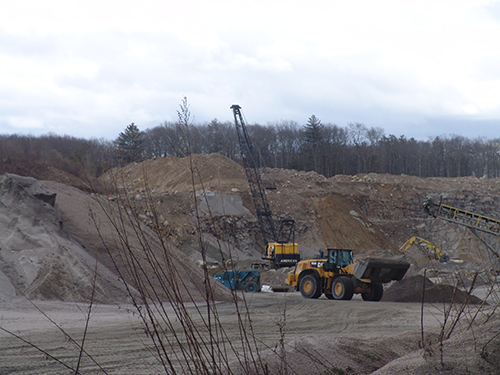
ecoRI News recently asked DEM, via e-mail, if it had taken any action against Hopkins Hill Sand & Stone concerning our “complaint” about waste runoff being discharged into the Big River Management Area.
The spokeswoman responded that DEM has sent the business three letters:
A noncompliance letter dated June 14, 2018 required a RIPDES application be submitted by July 16, 2018. The letter noted that Hopkins Hill Sand & Stone is in violation of the federal Clean Water Act and state law.
Last June’s letter also referenced another letter sent nearly 14 years earlier (Oct. 13, 2004) that notified Hopkins Hill Road LLC that it needed “to apply for and receive approval from the DEM RIPDES program for the permitting of stormwater discharges associated with industrial activity.”
“We don’t know when the discharge began. The letter advised the company of the need to apply for a permit for the discharge, which the company did not do,” the DEM spokeswoman responded via e-mail to follow-up ecoRI News questions.
During a May 4, 2018 inspection DEM confirmed that Hopkins Hill Sand & Stone “is currently discharging stormwater associated with industrial activity and process water associated with sand and gravel washing operations.”
DEM hasn’t conducted any another inspections of the property since early last May, according to the agency spokeswoman.
The June 14, 2018 letter gave the operation three choices: submit a RIPDES application; eliminate overflow discharges of sand and gravel wash-waters and submit a multi-sector general permit; or eliminate all discharges.
A subsequent letter dated July 16, 2018 extended the company’s RIPDES application deadline to Aug. 27, 2018, to allow the operation to eliminate a “gap in the weir” that resulted in the discharge.
Although DEM noted that it was extending the deadline, it advised Hopkins Hill Sand & Stone to submit its RIPDES “application as soon as possible as any discharges from the facility without a permit are in violation of State Regulations and the Clean Water Act.”
A letter dated Oct. 26, 2018 was written in response to Hopkins Hill Sand & Stone’s RIPDES application. The letter noted five deficiencies that need to be corrected before the application can be considered.
The letter also noted that “any discharges from this site are unpermitted and subject to appropriate enforcement.”
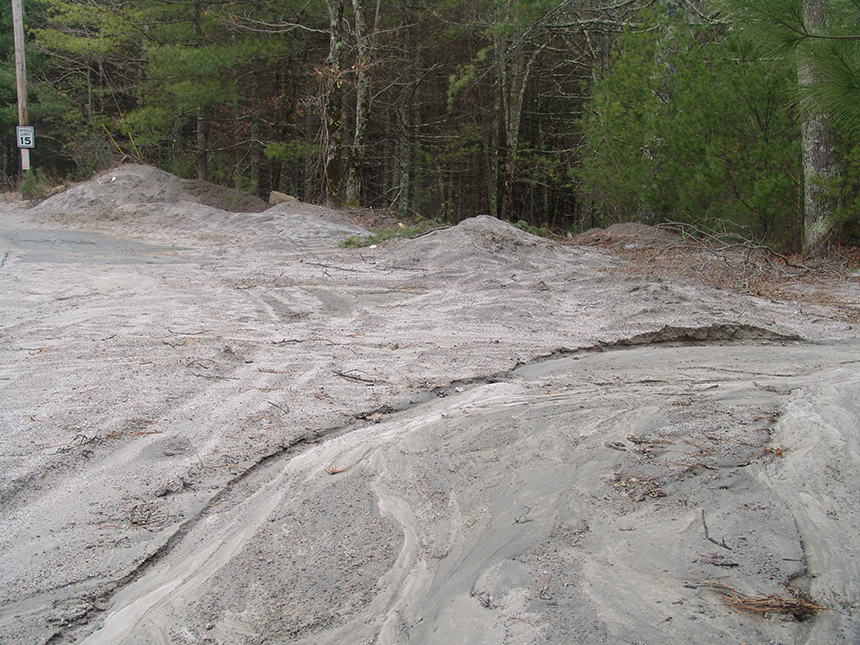
Hopkins Hill Sand & Stone had until Dec. 1 of last year to respond to DEM’s deficiency letter. As of March 18 of this year, no response had been received.
The quarry “has not formally responded to the letter and it has not addressed the requirements of the letter,” according to DEM.
Hopkins Hill Sand & Stone, an arm of the Cardi Corp., sells washed concrete sand, washed asphalt sand, bank gravel, and pond fill, among other products. The mining operation, which borders the Big River Management Area, also conducts blasting, as these Facebook and YouTube videos show.
For last April’s story, ecoRI News spoke with Steve Cardi II, a managing member of Hopkins Hill Sand & Stone, about quarry runoff concerns. He blamed the “unbelievable” rains of the past month for any current issues. He said the operation every spring checks on its erosion controls, such as silt fencing and hay bales.
Cardi said the quarry has never had a runoff issue come up. When asked how long the quarry has been in operation, the 58-year-old said, a long time, “since I was a little kid.”
DEM said the case is under investigation, and that the next step in the enforcement process “would be to issue a formal notice of violation.”

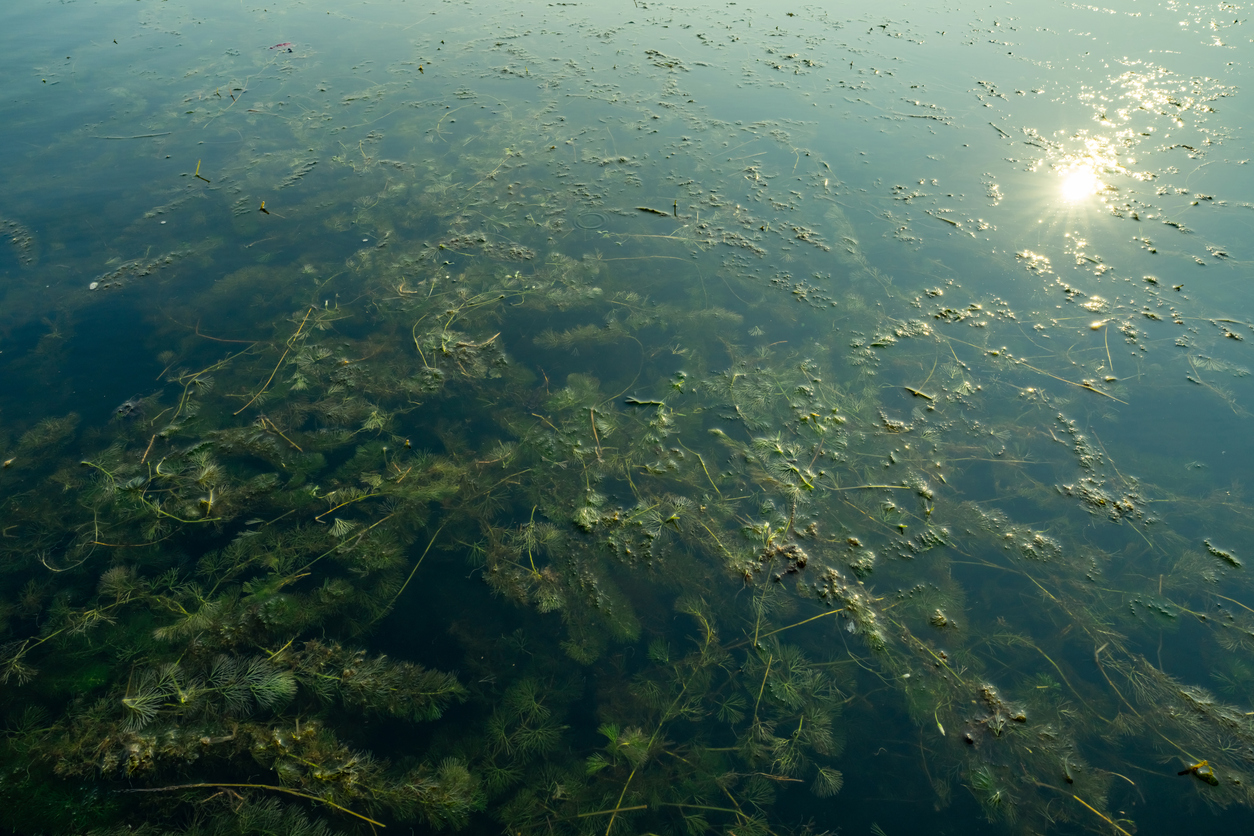
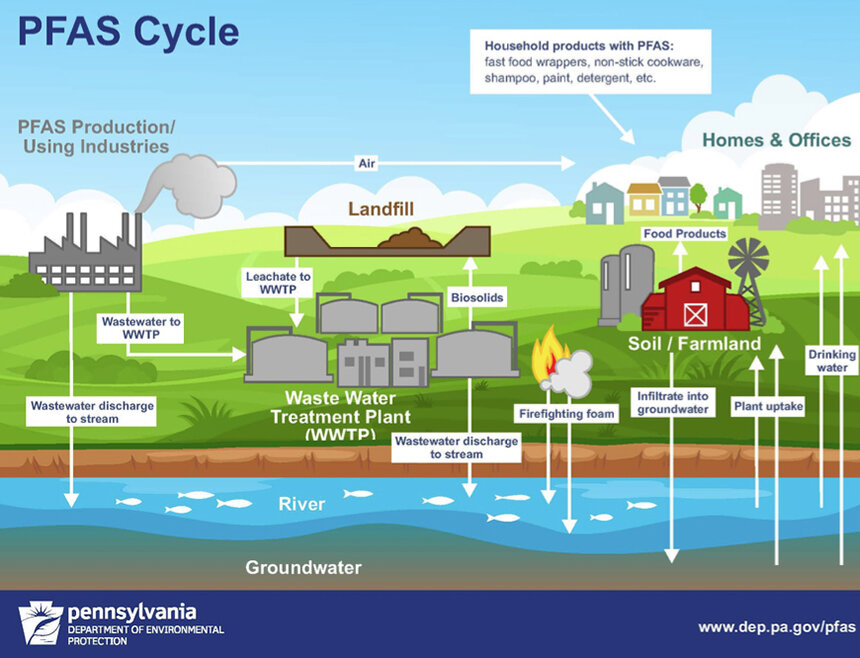
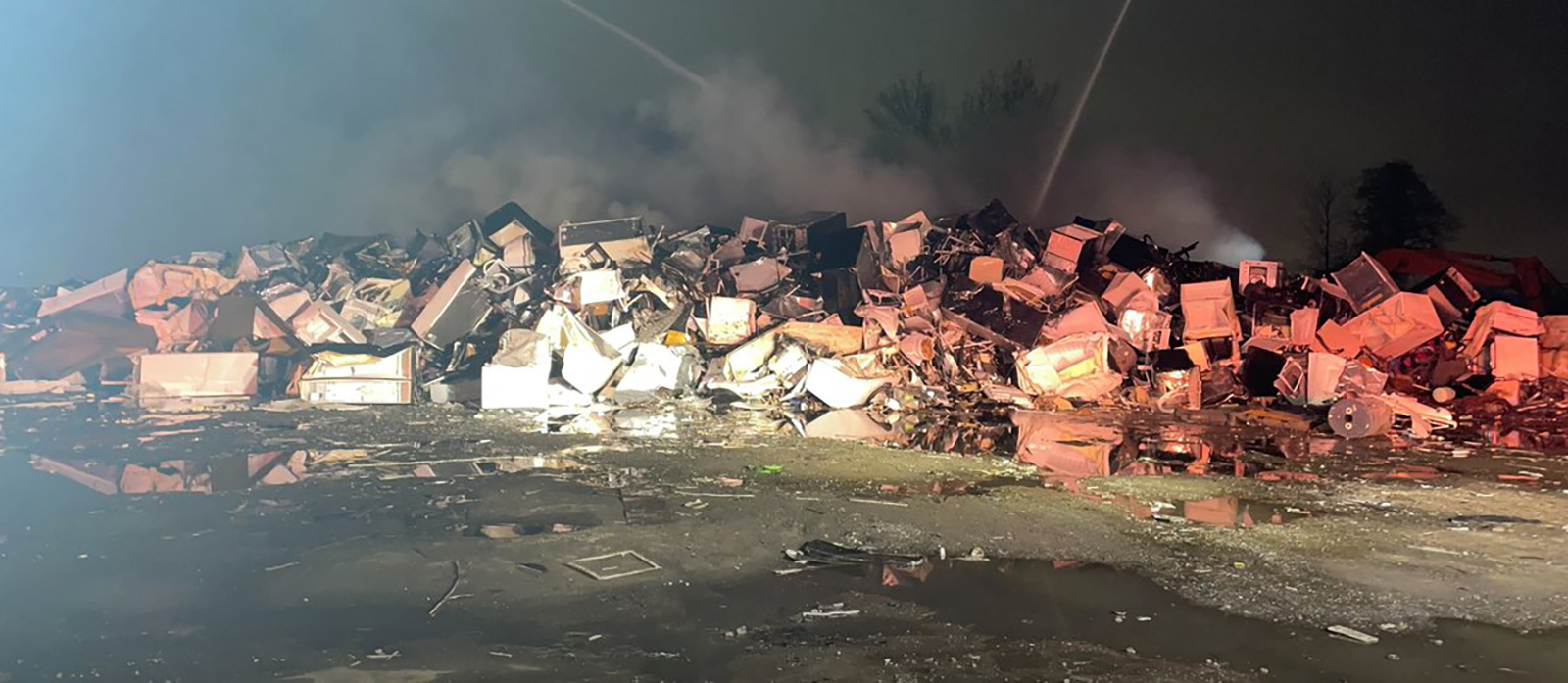
Surprising…
Cardi Corp. has a long and distinguished reputation as professionals in the construction industry. Unusual rains aside, (that can be anticipated to become more the norm as the climate heats up,) it does not seem that there is any excuse for their stalling on correcting deficiency notices they’ve been issued. You might expect this from a mom and pop operation, but not Cardi.
What gives?
Good journalism. Thanks.